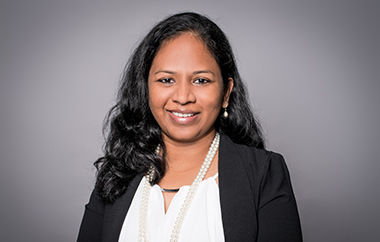PhD in Environmental Engineering Technology/Environmental Technology
Current position: Senior Lecturer, Faculty of Technology, University of Sri Jayewardenepura, Sri Lanka
Research focus: sustainable waste management, waste upcycling and waste-based business development, eco-designs and innovations, materials development, and circular economy
Randika also focuses on education for sustainability and creating awareness on waste upcycling. Randika manages the research and development project “Australian-Sri Lankan University partnerships to develop community-based waste upcycling businesses” and collaborates with the organisation “Waste for Life”. She aims to devise composite materials using waste materials collected from the source and has already generated positive dialogue with many industries to collect and sort waste and to appreciate the resource value of waste. Four waste upcycling start-ups have been established. These businesses make use of the innovative products developed through her research and will promote upcycling practices in communities across Sri Lanka.
CV as submitted for the Green Talents award (2018):
University of Sri Jayewardenepura, Sri Lanka
Research focus: sustainable waste management, in particular waste upcycling and waste-based business development, eco-designs and innovations, circular economy
Mismanagement of solid waste is causing serious social, environmental, political and health-related problems. In particular, the haphazard disposal of non-degradable synthetic materials such as plastics and other polymer-based packaging materials blocks waterways and drains, pollutes the air and creates large floating islands of debris in the ocean. In Randika’s home country of Sri Lanka, the garment industry is the largest manufacturing sector, however, there are at present no textile recycling facilities in the country to deal with the waste that the industry generates. Randika is seeking to address the environmental pollution caused by non-degradable synthetic materials that are not normally recycled through conventional recycling methods.
To support her cause, Randika is promoting inter-disciplinary cooperation from the fields of Chemistry, Material Science, Environmental Science, Engineering and Technology, Integrated Design and Social Sciences. She also manages a research and development project called “Australian-Sri Lankan University partnerships to develop community-based waste upcycling businesses” and collaborates with the organisation “Waste for Life”. She aims to devise composite and laminating materials using waste materials collected from the source and has already generated positive dialogue with many industries to collect, sort and appreciate the resource value of waste. As a mark of success of the initiative in which she plays a central role, four sustainable waste upcycling start-ups have been established. These businesses make use of the innovative products developed through her research and will promote upcycling practices in communities across Sri Lanka.
The jury was impressed by Randika’s multi-faceted engagement with the issue of recycling. She is not only attempting to improve sustainability efforts as a scientist, but also as a project manager, business person and activist and it is undoubtedly because of her personal drive that Randika has already achieved a great deal in her field.






